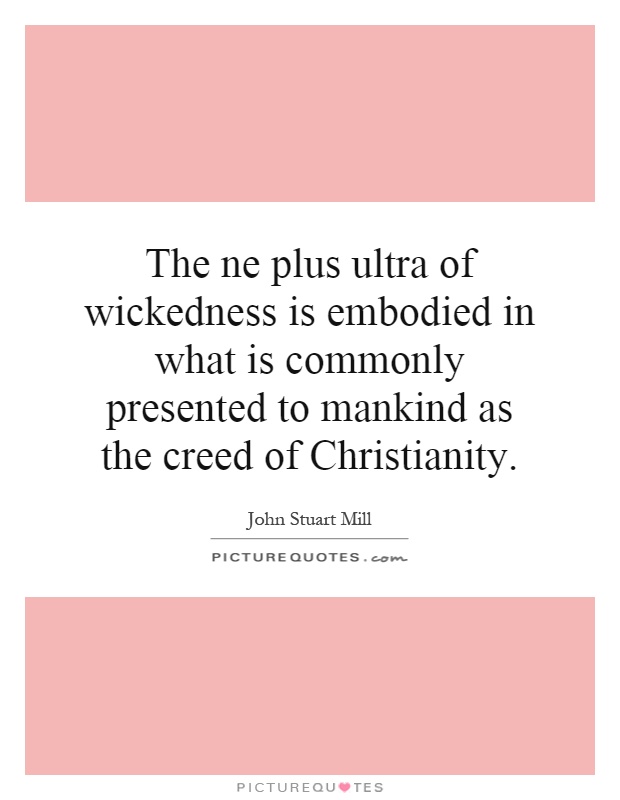The ne plus ultra of wickedness is embodied in what is commonly presented to mankind as the creed of Christianity

The ne plus ultra of wickedness is embodied in what is commonly presented to mankind as the creed of Christianity
John Stuart Mill, a prominent philosopher and advocate for individual liberty, was known for his critical views on organized religion, particularly Christianity. In his works, Mill often expressed skepticism towards the teachings and practices of Christianity, arguing that they were often used to justify oppressive and harmful actions. The quote, “The ne plus ultra of wickedness is embodied in what is commonly presented to mankind as the creed of Christianity,” reflects Mill’s belief that the principles of Christianity, as they were commonly understood and practiced, could lead to great harm and injustice.Mill’s criticism of Christianity was rooted in his belief in the importance of individual freedom and autonomy. He believed that organized religion, particularly Christianity, often sought to impose rigid moral codes and beliefs on individuals, limiting their ability to think and act for themselves. Mill saw this as a form of tyranny, where individuals were forced to conform to a set of beliefs that may not align with their own values and principles.
Furthermore, Mill was critical of the way in which Christianity had been used throughout history to justify acts of violence, discrimination, and oppression. He believed that the teachings of Christianity had been twisted and distorted to serve the interests of those in power, leading to great suffering and injustice for many people. In this sense, Mill saw the creed of Christianity as a dangerous and destructive force that could be used to justify all manner of wickedness.
It is important to note that Mill’s criticism of Christianity was not a rejection of spirituality or moral values. Instead, he believed that individuals should be free to explore their own beliefs and values, without being constrained by the dogma of organized religion. Mill’s views on Christianity were part of his broader philosophy of individual liberty and the importance of allowing individuals to think and act for themselves.












 Friendship Quotes
Friendship Quotes Love Quotes
Love Quotes Life Quotes
Life Quotes Funny Quotes
Funny Quotes Motivational Quotes
Motivational Quotes Inspirational Quotes
Inspirational Quotes